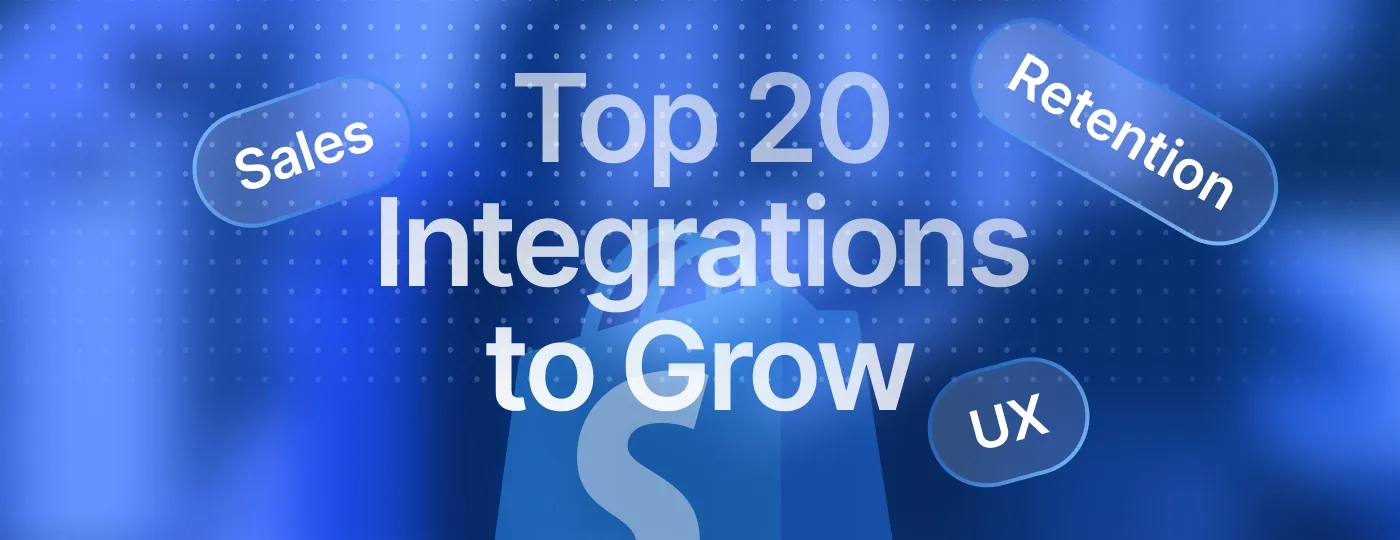
Shopify is great for launching an online store, but growing it is another story. As your business expands, built-in features often fall short for shipping, marketing, analytics, and more. The Shopify integrations can boost sales, improve customer experience, and streamline operations.
In this article, you’ll find the best Shopify integrations in several categories. Each can enhance your shop’s functionality and make its management easier.
Top 7 Shopify app categories and the best tools for each
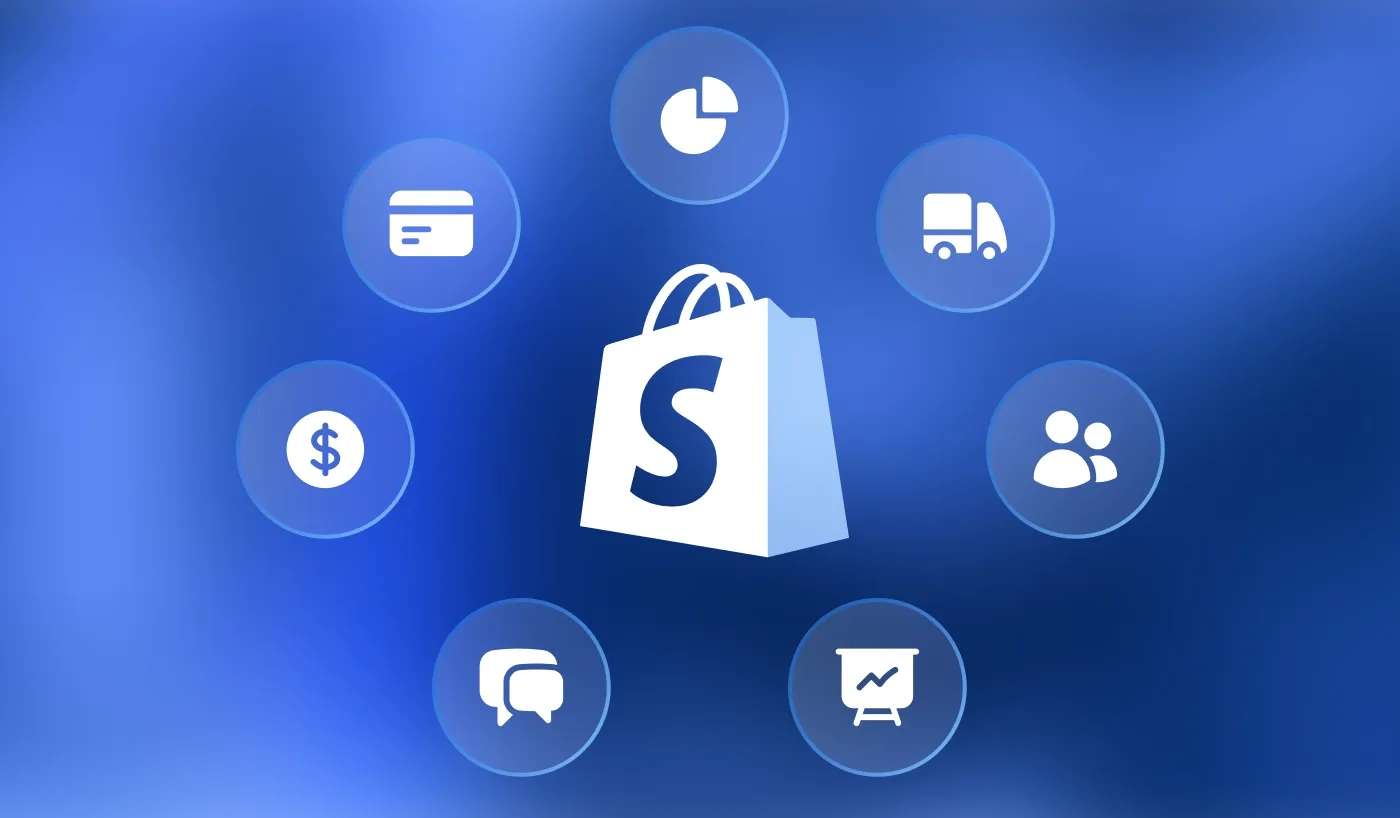
Shopify offers seamless integration with numerous services. Integrations cover diverse functionalities and aspects of online businesses:
We’ve picked the most useful and powerful applications in each category. Let’s explore the best-in-class Shopify integrations list.
Best shipping apps for Shopify
Shopify shipping integrations ease order management, enabling automation of shipping label generation, carrier selection, and order tracking. Businesses can optimize shipping workflows and show real-time status updates.
Some of the best Shopify shipping apps are:
ShipStation
ShipBob
AfterShip
Shopify marketing integrations
These top Shopify integrations make it easier for businesses to promote products and engage with target audiences. You can create personalized offers to drive quality traffic to your store.
Some of the top marketing integration options are:
Klaviyo
Privy
Drip
Analytics integrations for Shopify
Analytics top Shopify integrations provide insights into customer behavior, helping identify trends and make data-driven decisions. With this, you can optimize marketing strategies and interact with users more efficiently.
To understand your audience better, consider using the following integrations:
Hotjar
Lucky Orange
Analizify
Conversion and sales integrations
Integrations also help drive revenue by optimizing product pages, managing sales funnels, improving navigation, and offering discounts.
Some of the most popular conversion and sales tools include:
Sellbrite
Yotpo Product Reviews
CedCommerce
Upselling integrations for Shopify
Upselling Shopify integration apps stand somewhere between marketing and sales, increasing average order value through personalized suggestions that encourage customers to add more items to their carts.
The following apps can help you achieve this:
Recart
Frequently Bought Together
ReConvert Upsell & Cross Sell
For more options, explore our guide to the top 10 Shopify upsell apps.
Customer service integrations
Shopify tools like live chat, help desk, and ticketing system improve customer care, easily resolving client issues, driving customer satisfaction, and ultimately improving loyalty and revenue.
Consider the following integrations for this:
Gorgias
Delighted
Brand loyalty integrations
With the brand loyalty Shopify integrations list, you can nurture customer relationships with the help of referral programs and rewards systems, encouraging engagement with the brand and increasing customer retention.
To build loyalty and encourage repeated purchases, you can use:
LoyaltyLion
Rise
| Choosing the right Shopify apps can be overwhelming, so we’ve done the work for you. Get our FREE guide that covers 11 key store categories with the top 5 apps in each. |
|---|
Best Shopify integrations: Features, benefits, and pricing
Let's discover the top Shopify integration apps, including their features, benefits, pricing, and usage particularities will help you understand what can suit you.
ShipStation
ShipStation is an integrated shipping platform that powers ecommerce businesses, streamlines shipping workflow, and manages delivery experiences.
Features & benefits:
Fulfillment tools offer automation, bulk printing, and warehouse systems
Order synchronization includes Amazon, Etsy, Walmart, eBay, and NetSuite
Shipment rates, returns, insurance, and custom forms available at checkout
Convenient tracking functionality for a smooth purchase experience
New additions include inventory syncing and the delivery-by-date filter in Shop Promise
Shipping options, including UPS, USPS, Canada Post, Royal Mail, Australia Post, DHL Express
Challenges:
Lack of proactive assistance from the support team
Incidental problems with functionalities
Pricing:
No free plan
Paid plans begin at $9.99/month
ShipBob
ShipBob is a platform with extensive functionality for order fulfillment and inventory management, enabling automatic shipping of orders to its warehouses in numerous locations.
Features & benefits:
Integrations with tools such as Klaviyo, Gorgias, and NetSuite, and open API
Creative personalization options to create your own branded unboxing
Same-day shipping to ensure orders arrive on time
B2B order fulfillment for 150+ EDI-compliant retailers
Real-time order synchronization, tracking, and analytics
Challenges:
Pricing unclear to some users
Issue processing takes time
Pricing:
No free plan, free to install
Custom pricing based on activity
AfterShip
AfterShip is a package tracker that allows real-time updates of package arrival, the creation of customizable tracking pages, and the automatic notification of customers, which facilitates an efficient way of monitoring orders.
Features & benefits:
Personalized tracking pages with custom product suggestions
Centralized shipment dashboard to track status and identify exceptions quickly
Automated SMS and email reminders for customers
On-time performance and risk analytics
AI-based delivery date predictions to reassure a consumer
Challenges:
Key carrier integrations in higher-tier plans
Occasional blank screens and dashboard issues
Pricing:
Free plan, free to install
Free trial available
Paid plans begin at $11/month
Klaviyo
Klaviyo is an email and SMS-based marketing platform that helps you to leverage your customers' data to deliver personalized email and SMS campaigns.
Features & benefits:
Shopify and third-party app data integration (web activity, tags, catalog, coupons)
Reviews management, personalized emails, and SMS marketing
Real-time access to automation, campaign, and segment revenue data
Premade templates (Welcome, Back in Stock, Abandon Cart, Price Drop, etc.)
Challenges:
Unintuitive interface for some users
Missing a good support and ticketing system
Pricing:
Free plan, free to install
Paid plans begin at $15/month
Privy
Privy is a marketing app that simplifies email and SMS marketing for Shopify-based businesses by providing streamlined tools focused on expanding audiences and driving conversions.
Features & benefits:
Drag-and-drop email editing tool with ready-to-use email templates
SMS marketing for sign-ups and cart recovery
Round-the-clock emails and SMS automation
Support via email and live chat
Challenges:
Slow update loading
Pricing:
No free plan
Paid plans begin at $24/month
Drip
Drip is a multi-functional Shopify marketing integration that automates marketing activities, sets up email campaigns, and manages pop-ups and offers rich functionality for account and campaign customization.
Features & benefits:
Workflow templates for welcome, cart abandonment, and back-in-stock
Detailed customer analysis with real-time segmentation
Popups, quizzes, surveys, and forms
Drag and drop tool placing store products into emails
Challenges:
Occasional glitches after functionality updates
Pricing:
No free plan
Free trial available
The paid plan is $39/month
Hotjar Install
Hotjar Install is a popular and comprehensive analytics tool that enables you to learn more about your customers' behavior, which, in turn, leads to making better decisions, improved UX, and enhanced Shopify CRO.
Features & benefits:
Simple implementation with no development expertise required
Seamless compatibility with all Shopify themes
Enhanced ecommerce event tracking for deeper insights
Always-on tracking with minimal code implementation
Challenges:
Troubleshooting issues
Limited plan tiers
Pricing:
No free plan
Free trial available
The paid plan is $0.99/month
Lucky Orange
Lucky Orange is a Shopify tool that analyzes users' behavior by viewing what users are really doing in your store, how customers are navigating pages, and where they click and where they abandon to help you prevent lost sales.
Features & benefits:
Session recordings to observe how buyers move in your store
Heatmaps for tracking visitors’ click and scroll
Checkout monitoring dashboards that show important events and identify checkout friction
Page analytics to detect frustration cues in order to enhance user experience
Custom conversion funnels with built-in tracking to indicate where the visitor abandons purchases
Challenges:
Occasional glitches after major updates
Limited functionality on tablets
Pricing:
Free plan
Paid plans begin at $19/month
Analizify
Analizify is a platform that simplifies collecting data about your store by consolidating information from a variety of sources into one dashboard. It is easy to install, supported with expert help, and makes monitoring performance more efficient and straightforward.
Features & benefits:
Enhanced server-side GA4, Meta, and TikTok tracking
Easy integrations with GA4, Google Ads, GTM, and other tools
Google Ads Conversion Tracking (+Enhanced) and Dynamic Re-marketing
Key reports on Shopify-embedded marketing analytics dashboard
Complete compatibility with Checkout Extensibility & Consent Mode v2
Challenges:
Confusing terminology
Pricing:
No free plan
The paid plan is $945/month
Sellbrite
With Sellbrite, merchants sell on large marketplaces like Amazon, eBay, and other platforms, controlling the inventory and managing everything from one place while reaching customers across many platforms.
Features & benefits:
Automatic inventory adjustment and synchronization to avoid overselling
Inventory control and product listing creation of all product variants
Bulk product listing to acquire new customers in various marketplaces
Shopify marketplace order and existing orders fulfillment
Multi-warehouse inventory listing of the combined stocked inventory
Challenges:
Slow sync times to some users
Limited support hours
Pricing:
Free plan
Free trial available
Paid plans begin at $19/month
Yotpo Product Reviews & UGC
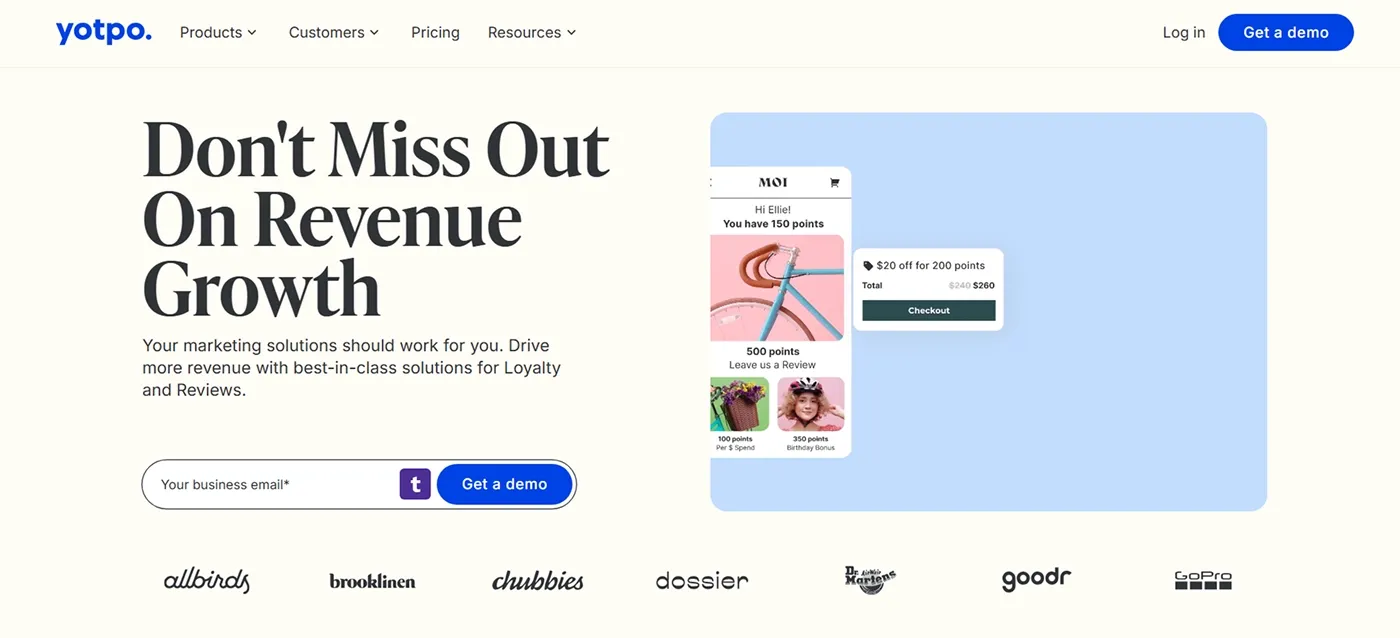
Yotpo helps you gather reviews, photos, and videos using in-mail requests, SMS, and AI-powered prompts, boosting your reach by showcasing those reviews on social channels and Google searches.
Features & benefits:
Automated product and site review
Review displays with Smart Filters
Cross-platform synchronization of reviews, including TikTok, Walmart, and more
Review widgets (carousels, AI review summary, and more)
Google Seller Ratings and Google Shoppable Ads for search visibility
Challenges:
Slow customer support
Limited theme customization
Pricing:
Free plan
Paid plans begin at $15/month
Etsy Integration ‑ CedCommerce
Etsy Integration ‑ CedCommerce enables merchants to bulk list, edit, and sync products on Etsy, manage inventory, prices, and shipping using smart templates, translate listings, and streamline product management and control between Etsy and Shopify stores.
Features & benefits:
Shopify-Etsy synchronization
New product creation in Shopify
On-time inventory, price, and order synchronization
Etsy price customization
Automated Etsy-Shopify product sync
Multi-currency and multi-location support
Product segmentation by shipping information, category, and attributes
Challenges:
Complex setup
Issues with large lists
Pricing:
No free plan
Free trial available
Paid plan is $9/month
Recart
Recart is a Shopify integration that makes it easier to expand the subscriber base and boost conversion rates with SMS Marketing + AI to fully manage SMS campaigns.
Features & benefits:
Desktop and mobile custom popups, direct-to-text, and email capture
Fully-managed service for growing your business via SMS
Automated workflows for welcomes, abandoned carts, and reorders
AI tools to generate and optimize content
Built-in compliance, real-time analytics, and 7-day-click attribution for sales
Challenges:
Synchronization issues and occasional glitches
Pricing:
Free plan, free to install
Free trial available
Paid plan is $299/month
| Discover the must-have Shopify apps in our FREE guide . Download it now to find out which tools can help you streamline operations and grow your store. |
|---|
Frequently Bought Together
Frequently Bought Together by Code Black Belt is one of the best Shopify plugins and a great tool for upselling that integrates personalized recommendations and discounts to motivate consumers to add more items to their carts.
Features & benefits:
AI-driven product recommendations
Full theme customization
Four different types of bundle discounts for increased conversions
Full-featured product recommendation for creating your own product bundles
Challenges:
Complicated functionality to some users
Occasional glitches
Pricing:
Free plan
Free trial available
Paid plan is $19.99/month
ReConvert Upsell & Cross Sell
ReConvert Upsell & Cross Sell is a Shopify toolkit that grows conversions through re-engagement and upsells, letting you easily set up and manage all aspects of the post-purchase funnel.
Features & benefits:
Product upsell funnels (cart, checkout, post-purchase)
A/B testing with performance analytics
Thank you page upsells
One-click upsells and product bundles
Customer segmentation and personalization
Mobile optimization and customization
Shopify Plus and Recharge integrations
Challenges:
Limited language support
Occasional problems with setup
Pricing:
Free plan
Free trial available
Paid plan is $4.99/month
Gorgias
With Gorgias, you can manage all communication and support channels via a single platform. This Shopify integration enables live chats, smart ticket automation with AI, and gathers user feedback and useful data.
Features & benefits:
AI-powered product recommendations and chat campaigns
All support channels in one place: email, chat, social, voice, and SMS
FAQ and order management
Full ticket resolutions in your brand’s tone of voice due to the AI Agent
Integration with over 100 ecommerce-specific apps for unified customer data
Challenges:
Email delivery issues for outgoing emails in some domains
Complex for non-tech users
Pricing:
No free plan
Free trial available
Paid plans begin at $10/month
Delighted
Delighted can equip you with data to boost satisfaction and conversion rates and allows you to automatically send surveys to your customers.
Features & benefits:
Survey templates for post-delivery surveys NPS, CSAT, and 5-star
Compatibility with Shopify POS to capture feedback for customers buying in stores
Brand customization for adding logos and customizing survey design
Real-time responses dashboard for tracking and trend analysis
Challenges:
High cost for small businesses
Pricing:
Free plan
Free trial available
Paid plans begin at $249/month
Rep AI
Rep AI is a Shopify application involving a plug-and-play AI chatbot to help you increase the number of visitors who turn into clients. It suggests purchases, answers questions, and guides shoppers from browser to buyer in minutes.
Features & benefits:
Behavioral AI for timely visitor engagement
Conversational AI for handling sales, support, and service automation
Brand intelligence offering unique brand messaging that matches your voice through AI learning and training
Real-time catalog for updating product data from the store and website with AI
Challenges:
Slow support response
Pricing:
Free plan, free to install
Free trial available
Paid plans begin at $99/month
LoyaltyLion
LoyaltyLion helps you turn one-time buyers into returning customers through referrals, reviews, and social media engagement, delivering a powerful loyalty boost with rich functionality.
Features & benefits:
Customizable loyalty page integration
Loyalty points for repeat purchases and enrollment incentives
Repeat purchase and membership enrollment rewards
Segmentation and customer behaviour data
Loyalty emails and notifications for engagement
Challenges:
Inefficient customer service
Limited language options
Pricing:
No free plan, free to install
Free trial available
Paid plans begin at $199/month
Rise.ai
Rise.ai helps boost Shopify sales and customer retention, featuring extensive reward functionality, a simple interface, and customization options for gift cards, cashback, refunds, referrals, and loyalty programs.
Features & benefits:
Loyalty and membership referrals, free shipping, sign-up credits, and brand perks
Gift cards, including bulk campaigns, CX and migrations, multi-store, and customized gifting
POS apps sync gift cards with rewards balances and issue refunds as store credit
Store credit workflows featuring personalized rewards with credits united under a single code
Refunds and returns with store-credit opt-ins and compensation tools for customer support
Challenges:
Difficult reward workflows
Limited functionality for POS integration
Pricing:
No free plan
Free trial available
Paid plans begin at $10/month
For more strategies on maximizing customer retention and revenue, check out our full guide on how to drive sales with a Shopify loyalty program.
Why partner with DigitalSuits for Shopify integrations
At DigitalSuits, we specialize in Shopify development and Shopify integrations, delivering successful projects for our clients. Let’s view some of our recent cases.
- For Understatement Underwear, our team implemented custom Shopify integration with Yotpo that enabled a unique review section aligned with the website design, boosting customer trust and engagement. Additional custom upsell, bundling, and cart drawer integrations helped increase conversions and improve the shopping experience.
- Cooperating with Innovative beauty company, DigitalSuits provided a headless Shopify setup (Hydrogen, Shopify Plus, Oxygen) with Sanity.io CMS and integrations with tools like Emarsys, Refersion, PowerReviews, and CyberSource streamlined content management, marketing, and order fulfillment, resulting in faster delivery, stronger brand presence, and improved customer retention.
- Integrations with Skio (bundle sales) and Track123 Order Tracking for Luma Nutrition enhanced shopping flexibility and post-purchase transparency, while predictive search and accessibility solutions improved usability, leading to higher conversions and a better customer experience.
If you already know which app is right for your store, we’ll handle the setup so you can start seeing results right away. Still weighing your options? Just contact us – we’ll recommend the integrations that align best with your goals and growth stage.
Frequently asked questions
1. How do I choose the best Shopify integration apps for my business?
Selecting the right apps should rely on your store's needs and objectives. Identify areas that need improvement, regardless of whether it is shipping efficiency, market automation, sales conversion, or customer loyalty, and then choose apps within the appropriate category that meet your budget and offer necessary features and solutions. However, you can always contact us for expert guidance on choosing the best Shopify app for your store, including solutions for Shopify CRM Integration and Shopify ERP Integration
2. Are there free Shopify integration apps available?
Yes. Many popular Shopify apps offer free plans or free trials. This lets you check their features before upgrading to a paid plan with more advanced functionality.
3. How can Shopify integrations improve customer experience?
Shopify integrations enhance customer experience, making the shopping process more enjoyable and personalized. For example, marketing integrations send customers offers, support integrations offer quicker responses, and shipping applications are filled with transparent tracking and delivery information. These tools make shopping easier, faster, and less tedious for the customer; therefore, improving the retention rate.































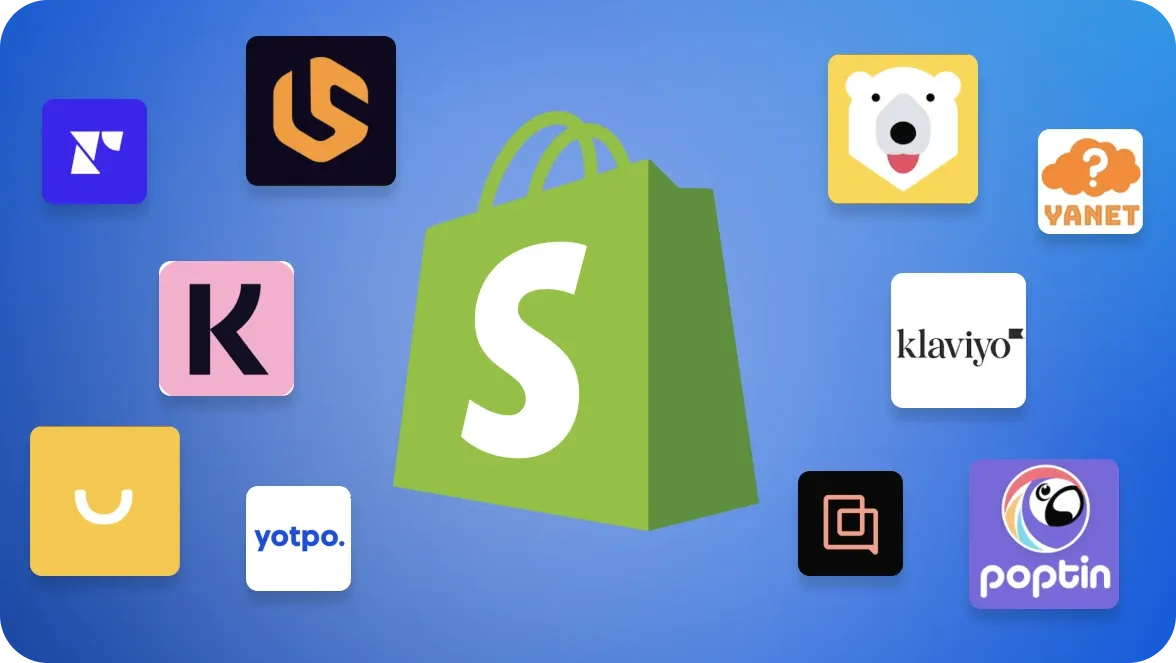
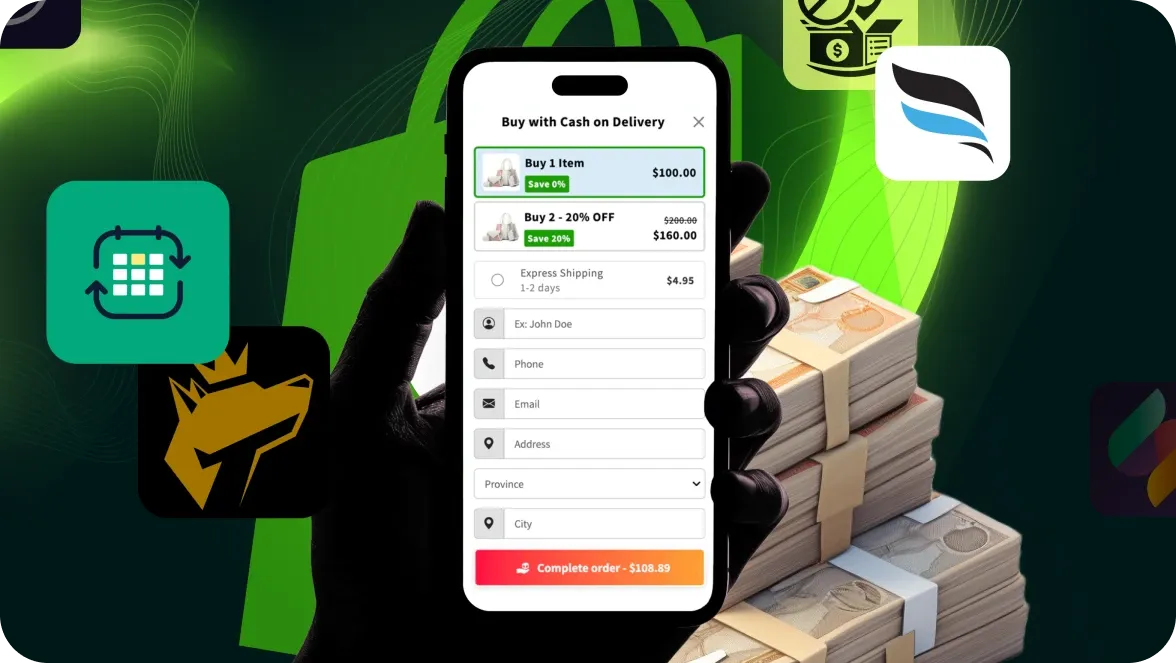

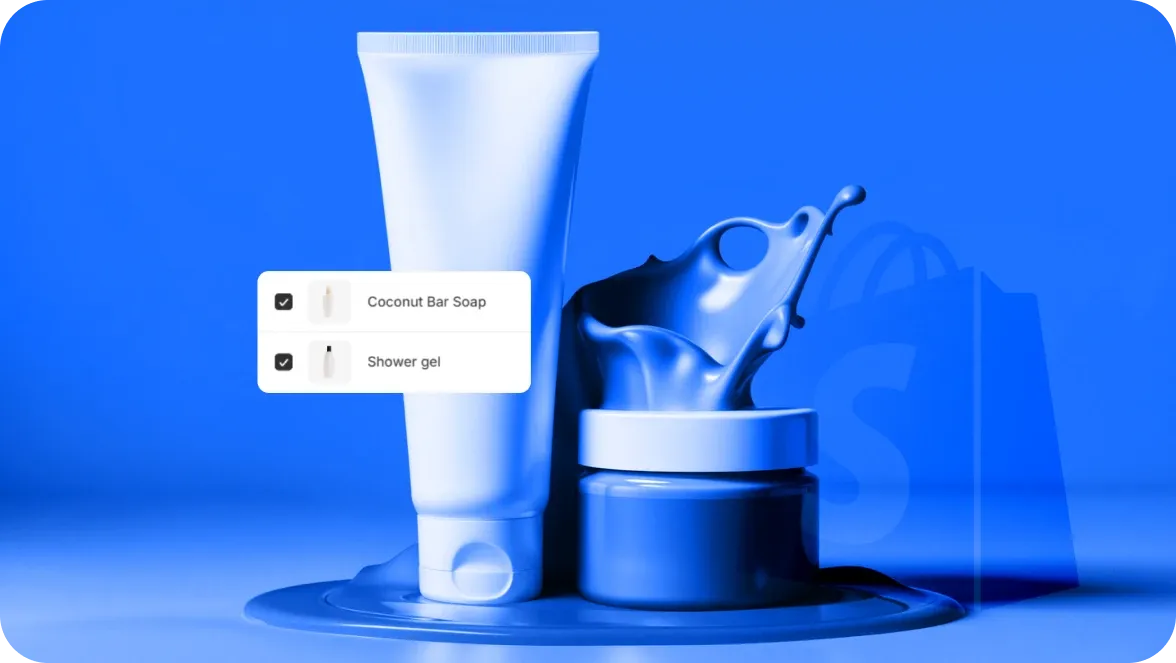
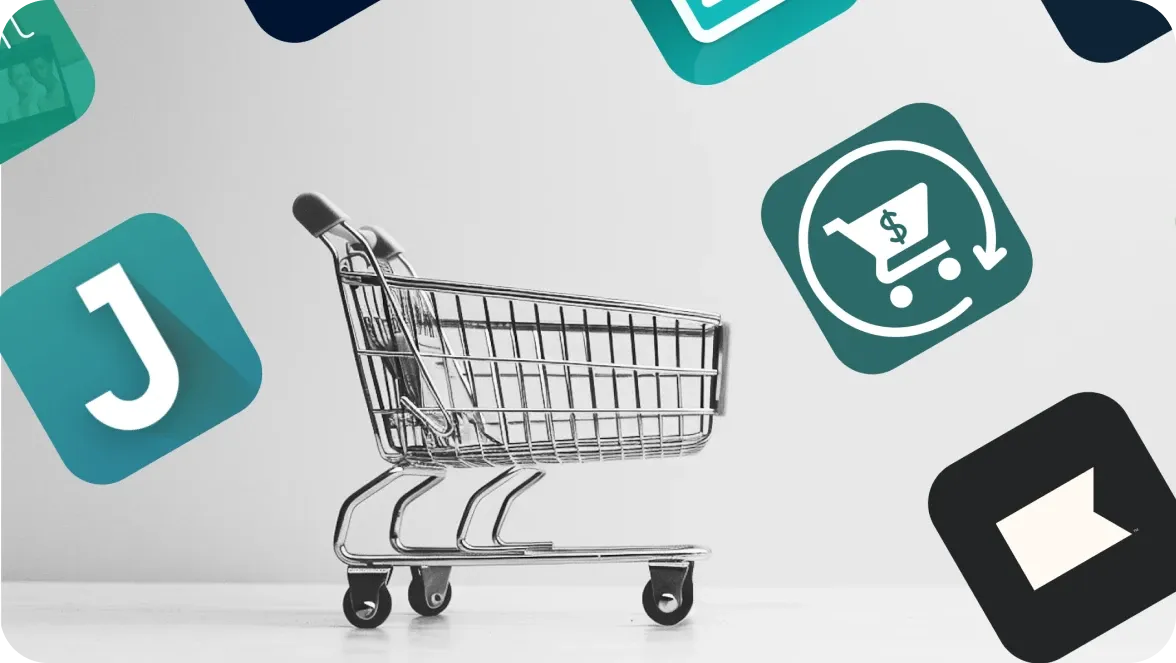




Was this helpful?
0
No comments yet